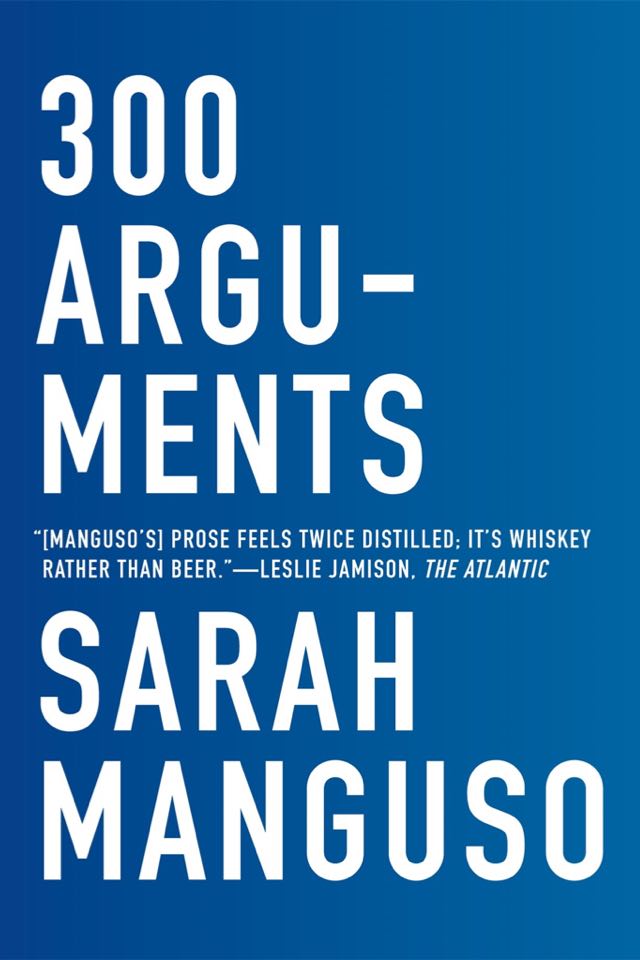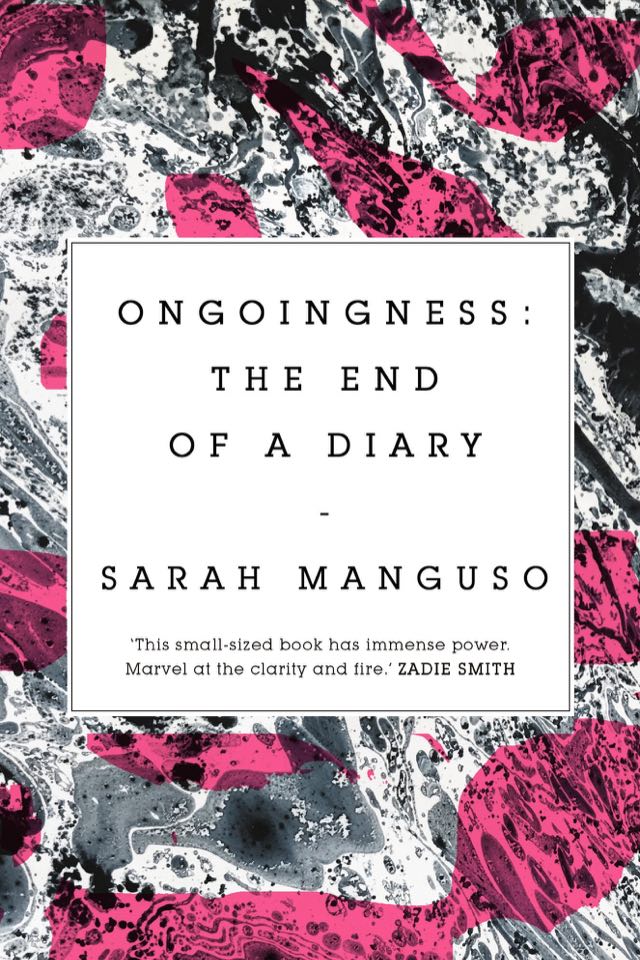An Interview with Sarah Manguso
— feature
Have you always gravitated towards the written word?
MangusoYes, but in the beginning there were other things, too. Then, as one does, I gradually left them aside. What’s left is a hedgehog dutifully trying to re-foxify itself.

What, or who, would you say has affected your work the most?
MangusoAbhorrence of disorder.
wildness
We appreciated how you referred to your editing process for 300 Arguments in Asymptote: “I pick at every sentence constantly until things are done.”
MangusoYes; I don’t find drafts to be an efficient way to work except at the very end, in page proofs.
wildness
Several of the earlier aphorisms in 300 Arguments relate to the way we tend to perceive ourselves (“all your worst fears and all your fondest hopes are at once true”). Our emotions continually pivot and affect our self-perception, but within this dynamic system is our constant search for a consistent self. Do you think such a thing is possible—or that it’s even desirable?
MangusoWhen my father was moving into a new condo, he heard someone call out: —Frankie? And my father turned around: —Ernie? It was his friend from Cub Scouts. They hadn’t seen each other in seventy years. Clearly something essential about them remained, though, observable to the other, at least. Everything changes constantly, and I have been many selves, but parts of my personality were fixed by the time I was four.
wildness
A recurring theme throughout our interviews is the notion of memory and how ineffective it is. In Ongoingness, you say: “I’d study the photos from an event and gradually forget everything that had happened between the shutter openings.” You’ve discussed this before, but how have your thoughts on this evolved since?
MangusoWilliam Maxwell, whose books I read and loved in my twenties, wrote in a letter to a friend a few years before he died: “Don’t—or at least I don’t think it is reasonable to—feel sad about the transitoriness of things. What you have had you will always have if you are a rememberer.” After reading that, in lieu of feeling ashamed of being so stuck in the past, I began to use Maxwell’s term. I’m a rememberer. It’s like being clairvoyant or left-handed.
wildness
Since you stopped keeping a daily record, do you feel more or less disassociated from the moment?
MangusoLess dissociated, to be sure, but I feel like a charlatan, like someone who forgets things.

In a Tin House interview you clarified your thoughts on death as “the root of all beauty and joy” (in reference to The Two Kinds of Decay line: “A crow stands outside my window all day, reminding me of the best thing about life—that it ends.”). How has your son’s ageing in parallel to your own, changed your notion of finiteness being a necessary and vitalising aspect of living?
MangusoProximity to my son’s life has intensified that feeling almost unbearably.
wildness
You’ve gone from poetry to autobiography; do you feel this was a natural progression? Does your grounding in poetry inform your prose?
MangusoI’ve been interested in short prose all along; even my first book, a poetry collection, is half prose poems. If you tore out all of the pages of my books and shuffled them into a single stack, I think you’d find a fairly consistent way of writing.
wildness
How important is it to immerse yourself in the local creative community?
MangusoCertainly there are many ways to interact with the local community or not. Not everyone has such a thing as a community, and those who think they do might not have one at all. It’s important to form a community of fellow travelers, but if they’re all dead or living 6,000 miles away, that’s okay, too.
wildness
What does a typical day (if there is such a thing) look like for you?
MangusoEvery semester is different, but these days, I drop my kid at school, do mindless administrative tasks for half an hour or so, and then, if the better part of the day isn’t given up to teaching, I have my second coffee and start to write. I’m currently on a K-a-day plan (1000 words).
I read and sing at intervals.
At two-thirty I leave to fetch my kid, and then the afternoon is occupied by parenting, and then, while my kid gets ready for bed, I do the next day’s New York Times crossword. After he goes to bed, I either read or watch something or spend a better sort of time with my spouse. I can’t believe I live like this.
When I leave town for a gig, I work in the airport and on the plane and in the hotel room like an addict. Twenty years ago I lived like that most of the time.
wildness
Would you say that you’re creatively satisfied?
MangusoI distrust the word “creative,” in general; it’s one of those words that’s often employed to keep out certain kinds of experience that are actually quite artful and exploratory, and to keep things in that are rote, routine, and dead. Satisfaction is overrated anyway, I think, and it’s an American idea that one ought to feel full in order to be satisfied. I think it’s all right to be always a little hungry, and maybe preferable; true satisfaction might depend as much on avoiding glut as it does avoiding shortage.
wildness
What are you working on?
MangusoA novel about the ways abuse spills down through the generations of a family.
wildness
Finally, what are you reading / recommending lately?
MangusoThe nine interstitial sections in The Waves and Michelle Tea’s 2018 essay collection, Against Memoir.
Read more from Issue No. 20 or share on Twitter.